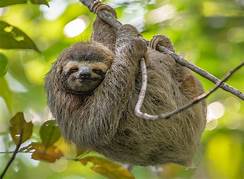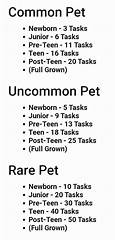Can You Own Sloths as Pets?
Sloths are fascinating creatures that have captured the hearts of many people. With their slow-moving nature, laid-back demeanor, and adorable appearance, it's no wonder that some individuals consider having them as pets. However, before you decide to bring a sloth into your home, it's essential to understand the unique needs, ethical considerations, and challenges associated with keeping these animals as companions.

Sloth Ownership: Ethical Considerations
1. Wild vs. Captive-Bred Sloths:
Sloths are wild animals, and taking them from their natural habitat can have detrimental impacts on both the individual and the ecosystem. Captive-bred sloths, on the other hand, are born and raised in captivity and are better adapted to human care. Opting for a captive-bred sloth is a more ethical choice.
2. Suitable Habitats:
Sloths require specialized enclosures that mimic their natural habitat, including tall trees for climbing, a warm and humid environment, and a varied diet. Providing such conditions can be challenging and expensive.
3. Social Needs:
Sloths are naturally solitary animals and do not fare well in captivity with other sloths or other species. Keeping them isolated can lead to loneliness, stress, and behavioral problems.
Legality and Licensing
1. Legal Restrictions:
In many countries and regions, owning a sloth as a pet is illegal or heavily regulated. It's crucial to check local laws and regulations before considering sloth ownership to avoid legal complications.
2. Licensing Requirements:
Some jurisdictions require permits or licenses to own exotic pets like sloths. These licenses may involve specific requirements, such as adequate housing, veterinary care, and insurance.
Health and Care
1. Specialized Diet:
Sloths have a unique diet consisting of leaves, fruits, and insects. Providing a balanced and varied diet that meets their nutritional needs can be challenging.
2. Susceptibility to Illness:
Sloths are prone to health issues, including respiratory infections, digestive problems, and parasites. Proper veterinary care and regular checkups are essential to maintain their well-being.
3. Slow Metabolism and Injuries:
Sloths have a slow metabolism, which makes them susceptible to injury and slow to heal. Accidental falls or mishandling can lead to serious health complications.
Conclusion
While sloths may seem like appealing pets, their unique needs, ethical considerations, and legal restrictions make them challenging and unsuitable for most individuals. Before considering sloth ownership, it's crucial to thoroughly research and understand the responsibilities involved. The welfare of the animal should always be the top priority, and adopting a sloth should only be done through reputable and ethical sources.
Declaration: All article resources on this website, unless otherwise specified or labeled, are collected from online resources. If the content on this website infringes on the legitimate rights and interests of the original author, you can contact this website to delete it.





